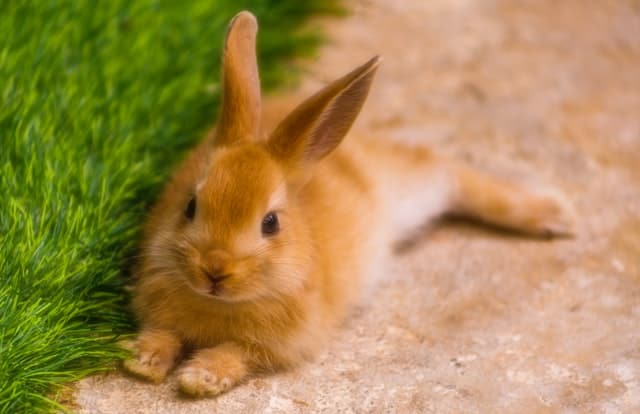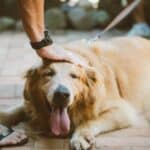
Animals have their own language. Like us, they often feel sad, listless and down, or on the contrary, happy, vital and very energetic. All these feelings and emotions are expressed differently depending on the animal.
Domestic rabbits are peculiar, if you have one at home many times you will wonder what will happen to it or what it means by its gestures, noises and postures.
These pets are affectionate, funny, and very intelligent, however, they can also be stubborn and somewhat aggressive, and we can find rabbits that bite. Therefore, we must be patient and dedicate time to them so that these animals do not feel alone, and thus also, you can learn the most characteristic traits of their personality.
Next, we will explain what happens when the rabbit is lying down breathing, but does not move, since it is a very everyday situation in which the owners are scared and do not know how to react.
What are the causes for my rabbit not to move but to breathe?
You should know that rabbits are very active animals and that they do not usually stay for a long time, calm and still in their cage, therefore it is important for their health that this animal recovers the energy and vitality that characterizes it.
The causes are varied. It may be that your rabbit is not moving because of something that could have happened to it a specific moment, for example, a minor accident or that the weather is affecting it.
The most common causes are:
- Heatstroke.
- Hypothermia.
- Stress.
- Anorexy.
- Paralysis.
- Trauma
- Age.
The weather, as we have said before, is very important, as extreme temperatures can seriously affect your health. A heat stroke can increase body temperature and cause heat stroke. These animals have a really hard time when the ambient temperature exceeds 28 degrees. Among many other symptoms, two of them are dehydration and little movement, two facts that cause the rabbit to be static. On the other hand, if the body temperature drops below 36 degrees, rabbits can suffer hypothermia, and therefore can enter a state of lethargy and immobility.
If your rabbit does not move and also scratches or moves its ears, that is, it has very fast and compulsive movements, it is probably under stress. For this reason, it is very important to create an emotional bond and that the animal follow a healthy and varied feeding routine.
Your rabbit can suffer anorexia mainly if it loses his appetite or has gastrointestinal problems, but one of the main symptoms is also immobility and the little energy that the animal has.
The paralysis may explain why your rabbit does not move but breathing. To prevent paralysis, you must ensure that the spine is not damaged or hit. In addition, it is necessary that your diet is balanced and that you are dewormed. There are three types of paralysis: neurological, which affects the spinal cord or peripheral nerves; nutritional paralysis , which appears if your rabbit does not have a proper diet; and finally parasitic paralysis , which arises in your rabbit if the parasites that affect these animals take away the mobility of their hind legs and cause them to lose mobility.
The injuries occur from a fall or accident and if your rabbit has undergone any of them, you may have a broken bone and can hardly move from the pain.
The age is another key factor because, as the years pass, rabbits have less energy, vitality and agility, fur takes on a different tone, movements are slower but aging can be one of the most likely causes that your rabbit is lying down but not breathing. However, your rabbit becomes progressively older, so if you notice your best friend without mobility from one day to the next, this is probably not the reason.
Recommendations to follow when my rabbit does not move
The first thing you should do is go to the vet, since the causes can be many and the consequences lethal. You also have to take rabbit to a specialist as soon as possible, since it is also key to its speedy recovery.
If, apart from the poor mobility, you notice that you have a runny nose and tears in your eyes, and regarding your stomach you suffer from diarrhea or swelling in the gut, it may be that you have a disease that should be treated.
In addition, it is very important that you do not self-medicate or practice any treatment on your own, since you can worsen the health of the animal.
One of the main recommendations that you can follow is that the rabbit is in a comfortable place so that it can rest properly. It is also very important that you live in a quiet place without much noise, that is, free of stress.
Food is very important, so you have to be well fed and hydrated, so that your health does not deteriorate and your condition improves.






